- Home
- Gerald Hammond
The Curse of the Cockers Page 9
The Curse of the Cockers Read online
Page 9
Daffy was always an eccentric eater, partly because she worked on the run in order to make time for Rex. When she was not joining him for a midday snack she could be seen darting around the kennels with a sandwich, a cold pork pie or a raw carrot in one hand and an opened tin of Coke dribbling into her pocket. That day, however, Rex being far away and getting further by the minute, she agreed to join us at the lunch table. But she was still restless and when the phone rang again she jumped up to answer it before either of us could move.
The call was evidently Rex. After a few veiled but amorous allusions, she asked, ‘How far have you got? . . . You’re over the Border then.’ She listened while still managing to munch on a filled roll. ‘I’ll pass it on,’ she said and after a few more exchanges of sexual badinage she hung up and returned to her seat.
‘Rex said to tell you that they stopped for petrol, coffee, and a dog-pee at Kinross Services, but when they asked their way to Mrs Bluitt’s smallholding they were told that there was a fire there the night before last. Seems like she died in it. So they’ve gone on.’
‘There wasn’t anything in the papers,’ Beth said.
‘It would be outside the territory of the Courier and Advertiser,’ I said, ‘and not a big enough disaster for national TV. I think I’d better go through and sniff around. Somebody may know who bought her pups.’
‘You’re not driving anywhere until you’re steadier on your pins,’ Beth said. ‘Especially not in Henry’s car. I wouldn’t mind so much if you crashed our one. The insurance money would at least give us a deposit on something that could run on unleaded.’
I was almost sure that she was joking, so I ignored the implied unconcern for my life and limb. ‘You drive me, then,’ I said.
Beth looked at me, at Daffy, and then at Sam. Her thoughts were so clear that they might have been stencilled on her forehead. I was still shaky and she was busy. The dogs came first and Angus and his problems a long way behind. ‘You must know somebody around there who could ask your questions for you.’
I was about to deny it when I remembered that somebody had settled up recently with a cheque on a Kinross bank. I applied my own version of Pelmanism and came up with a name. ‘Allan Forsyth,’ I said. ‘The man who brought a pup back for retraining.’
‘One of Moonbeam’s,’ Beth said. ‘Liver and white. Call him this evening.’
‘Try this afternoon,’ Daffy said. ‘He’s in the hotel trade, so that’s when he might be at home. If you don’t get him, try the Regis Hotel tonight. His family owns it and he’s the manager.’ She rarely spoke to clients but always seemed to know more about them than we did.
I found Allan Forsyth’s number in our records and dialled it in mid-afternoon. His voice answered, giving only the number and sounding, for him, irritable. I had forgotten that hotel staff work late and often snatch sleep in the afternoons. ‘Did I wake you?’ I asked.
‘Not really.’ I heard him yawn. ‘I was just waking up of my own accord and planning a dog-walk. Who is this?’
‘John Cunningham. How are you getting on with Gorse?’
‘I took him on the shoot—’
‘I thought I told you—’ I began.
‘But I went without a gun,’ he said quickly. ‘I concentrated on him, just as you told me. He was perfect all morning. He tried to play me up in the afternoon so I kept him on the lead.’
‘That’s the right treatment,’ I said. Maybe Mr Morgan was wrong and Allan Forsyth would make something of Gorse after all. ‘I’m calling about a lady out your way, a Mrs Bluitt. I understand that there was a fire?’
‘That’s right. Poor old soul!’ He was of an age at which anyone over forty is old. ‘She was trapped and died in the blaze. They could see her at an upstairs window but they couldn’t get her out in time. A shame. She was a nice person. A widow, one of those quiet women with a warm glow round them, know what I mean?’
‘Yes, I do,’ I said. Beth was surrounded by a warm glow. So was Henry. Of Isobel I was less sure.
‘I knew her quite well,’ Allan said. ‘She did a little market-gardening and bred working cockers. I bought some of her produce and I used to meet her quite often, walking our respective dogs. We talked about dog training and she told me much the same as you did.’
‘What we tell you three times is true,’ I misquoted.
‘I suppose it must be. Sometimes she’d come in for a bar lunch or just a shandy. Other times, she asked me to keep the pigeons off her vegetables or have a clear-out of the rabbits.’ I heard him sigh. ‘A terrible way to go,’ he said.
I had been on the point of accepting the death at face value, but his last phrase set bells ringing. There had been other deaths to fit that description. ‘How did the fire start?’ I asked.
‘Nobody seems to be quite sure. According to the local rag, the police say that their enquiries are continuing – whatever that means, if anything. Bar gossip has it that there was petrol involved although nobody can think of a reason why she should have petrol in the house. She kept her Rotavator in a shed about fifty yards away.’
He said ‘Hullo?’ twice while I picked my way through a series of unpleasant thoughts and wondered how to go on. ‘You wouldn’t happen to know whether she’d disposed of her last litter?’ I enquired at last.
‘So that’s it. Getting into cockers? I was wondering why you should be interested. No, I couldn’t tell you. Her sister would probably know. Hang on a moment while I get the number for you.’ He rambled on absently while he looked up the number. ‘A Mrs Radbone. She married a farmer whose land almost adjoins the smallholding. He ploughs – ploughed – and harrowed it for her every winter or she could never have managed to do market gardening and breed cockers, all more or less on her own. Here we are!’
He read out the phone number. I noted it down and thanked him. ‘I’ll get in touch with her,’ I said. ‘If you hear any more bar gossip about the fire, give me a ring.’
‘I’ll do that,’ he said. We chatted about dogs for a few seconds and rang off.
Chapter Six
I tried the number of the Radbones’ farm but only made contact with an answering machine with a strong Scots accent. I left a message, giving my name and phone number but saying that I would phone again.
It was time for the main meal, entailing a whole variety of diets for the different groups of puppies, young dogs, nursing dams, and two pregnant bitches, one of them almost due to whelp. Daffy came in, loaded the steaming bowls onto a trolley, and departed.
‘How would you like to be,’ she was singing as she worked, ‘Slightly insane with me. Oh what I’d give for an hou-er or two, Going completely bananas with you.’
It took me several days to get that version of the old song out of my head.
I opened a window to let the various dogfood smells clear and took a dish through to the pup in the surgery. He greeted me as a long-lost friend and attacked the dish as though starving.
We had never given him a name. He was already responding to ‘Pup’ and seemed to be more intelligent than many springers of the same age. Dealing with dogs day in and day out, one can become blasé and begin to think of them as no more than a commodity, but sooner or later a dog will turn up that jerks one back to the knowledge that they have charm and character – and needs. Pup was such a one. He was a cheerful little dog, growing visibly. He should have been moved out to one of the isolation kennels by now except that we would need space for the returning competitors and any dogs left for training. There were too many pups around, still too young for their full complement of shots, for us to risk the importation of kennel-cough or Parvo virus or worse. I spent a few minutes playing with him, improvising a game with an old sock.
I was wondering whether we shouldn’t diversify into cockers of working strains. They are quick and cheerful dogs with excellent noses, though sometimes headstrong, and their small size, although a handicap when it comes to retrieving a hare or a goose, lets them penetrate deeper into tight cover tha
n larger dogs.
My reverie and our game were interrupted by the phone. Isobel was calling to report their safe arrival at the nearest hotel to the championship venue. I reiterated our wishes for good luck. In field trials, good luck is almost as necessary as good training and handling.
Following the instructions that Beth had given me I began to prepare our evening meal; but she came in soon afterwards, shedding wet oilskins and the smell of the great outdoors. She checked on Sam, decided that all was well, and sent me back to my basket. Basket chair, I mean.
The phone kept me occupied. I fobbed off two enquirers after pups but was careful to get their numbers. In fact, we had a litter of which the two that we had decided not to train on would soon be old enough to go, but they had been sired by Rowan and a good performance in the championships would justify a premium on the price. Another enquirer, an elderly man who had more sense and compassion than to start afresh with a young dog when his own remaining active years might be few, was ready to make an offer for a retired brood bitch and former field-trial winner. We closed the deal over the phone.
The phone rang again. I picked it up, expecting another enquirer. ‘Throaks Kennels,’ I said.
‘This is Mrs Radbone,’ said a broad, female voice.
The name meant nothing to me for a moment, but the accent provided a hint. Mrs Bluitt’s sister. ‘Thank you for calling me back,’ I said. ‘I was very sorry to hear about your sister.’
‘Aye. It was sad,’ she said and waited patiently for me to go on.
I was still wondering what to say when I heard myself saying it. ‘I was interested to know what homes her last litter of pups went to,’ I said. ‘I suppose all her paperwork was destroyed in the fire?’
‘Aye. It was that.’
‘She never mentioned any of the names to you?’
‘Not that I mind. The pups are all away. I’m just left with her three bitches. They were in an outside run and the fire didn’t touch them.’ I heard her sigh. ‘But what to do with them I don’t know. My man keeps collies, and rough beasts they are, some of them. They don’t get along with the cockers at all.’
‘We could board them for you while you think about it,’ I suggested. If she took me up on it, our own two would have to go into one of the whelping kennels.
‘Och,’ she said, ‘I’m not wanting to run up a lot of expense when I’ve no mind to keep them. If you’ve a kennels, would you not care to make me an offer for them?’
I was struck dumb by the suddenness of the suggestion. After a few seconds of silence, she went on. ‘Come away now. A hundred pounds for the three of them. What do you say?’
The late Mrs Bluitt had neither worked nor competed with her own stock, but I knew her kennel name and the strains were good. I had seen dogs of her breeding figure in the frame at ‘Any Variety of Spaniel’ trials. At a hundred pounds, it could be the thief’s bargain of the decade.
‘How often have they been bred from?’ I asked.
‘Not one of them’s had more than two litters.’
The Kennel Club would be able to furnish the missing pedigrees. ‘Done,’ I said. ‘I’ll post you a cheque straight away.’
‘And come for them? I want them off my hands. I can’t take them home or there’ll be blood shed and I’m scunnered of traipsing to and fro with food for them.’
‘Somebody will be in-by in the next few days,’ I said.
‘There’s just one thing. One of them’s pregnant. Do you mind?’
‘Not in the least,’ I said. A pregnant cocker bitch of good working stock would be as good as money in the bank. A few enquiries would soon identify the sire. ‘But I’m still interested in the whereabouts of the last litter. You can’t call to mind anything your sister said?’
‘She never spoke much about them. The one thing I do mind is that they were all spoken for before Christmas and deposits paid. They’d be for presents, likely. But one purchaser cried off. And then another brought back the pup the next day. My sister aye made it clear that she’d take them back at half price if the family changed their minds, rather than have the pup passed on to a bad home or just abandoned.’
‘I do the same,’ I said with feeling.
‘Aye. Well, there she was with two pups on her hands, but before she could get around to advertising them a mannie phoned wanting one and fetched it the same day. Then, two days later, at Hogmanay it was, wasn’t he on the phone again saying he’d take the other one and he was coming through straight away?’
‘But she didn’t mention his name?’ I found that my voice came out in a gasp and realized that I had been holding my breath.
‘I haven’t finished,’ she said. ‘But no, she never said who he was. But she said that he was on the phone again the very next day, asking didn’t she know where to put her hands on a third. It was just you calling up about the same pups that brought it back to me.’
I thanked her sincerely, repeated my promises, and disconnected.
Beth had come in. ‘What have you let us in for now?’ she asked.
‘It’s a safe bet that both those pups came from Kinross,’ I told her.
‘Oh. What have you—?’
‘And the same man tried to buy a third one.’
‘Very interesting. What were you spending our money on?’
She was not going to give up. ‘I’ve bought the late Mrs Bluitt’s three brood bitches,’ I said.
Beth hit the ceiling.
*
The next morning was a definite drag. I was feeling almost back to normal but the female coalition limited me to an hour or so on the lawn – and that only because the day was dry and they needed my help. Several of the younger dogs in training were at a stage requiring regular exposure to flushing game. For lack of access to suitable ground, I had created a variety of complicated devices, designed to simulate flushing birds or bolting rabbits. These, however, were too idiosyncratic in design for Beth to set up, but when my pheasant-skin dummy had rocketed satisfactorily a dozen times, with satisfactory responses from the pupils, I was dismissed back to the house. I would have been roused into rebellion except that I was still manoeuvring towards acceptance of the cocker spaniels
For once, Daffy was almost my ally. She accepted the imminent arrival of three more brood bitches calmly and planned a sensible reallocation of the whelping and isolation kennels. Beth was irritable and working it off on me. I had no right to commit the partnership to capital outlay, running expenditure, and hard work without consultation. She was right, but that did not make it any easier to accept her strictures without snapping back.
Mrs Radbone phoned again at lunchtime. By some miraculous working of the Post Office my cheque had arrived; but when was I coming to fetch those dratted dogs of her sister’s? I said that I’d come over that afternoon.
‘You are not fit to drive,’ Beth said. ‘And I have the keys of Henry’s car.’
‘Come and drive me,’ I said.
‘I can’t spare the time. Henry and Isobel will be coming back that way.’
‘Not for a couple of days. Mrs Radbone’s getting impatient.’ I decided that two could be as crabby as one and that I might as well get my turn over while Beth was still in the dumps. That way, we could recover together. ‘I’ll take a taxi,’ I added.
Daffy, who was again sharing lunch with us, stepped in quickly. ‘I can manage for the afternoon. You go, Mrs Cunningham. The break will do you good.’
‘You’re sure?’
‘How long will it take you?’ Daffy asked rhetorically. ‘Forty minutes each way? Two hours altogether, three at the most. Why wouldn’t I cope?’ She contrived to sound insulted but she winked at me behind Beth’s back.
I called Mrs Radbone back to say that we were coming. We strapped Sam’s Carricot onto the back seat of Henry’s hatchback and put a large dogbed in the boot, leaving the parcel shelf in the house. The car stood on its nose once or twice until Beth adjusted to the automatic transmission and stopped declutching wit
h the brake pedal.
The drive to Kinrose took longer than Daffy’s forty minutes because of road-works. ‘I wonder how Isobel’s getting on,’ I said, as we sat and glared at a red traffic light which only glared back at us while nothing whatever came the other way.
‘As Isobel says, knowing wouldn’t change anything. She’ll phone tonight,’ Beth said grimly. ‘Just you wait till she hears that we’ve branched out into cockers.’
‘If she grizzles about it the way you’re doing,’ I said, ‘I’ll pay the hundred quid out of my own pocket and keep them as my personal dogs.’
‘You wouldn’t!’
‘Why not? You do,’ I pointed out. Beth had a Labrador of her own and was still striving to make him up to champion.
She was silent as far as the next traffic control. I had flicked her on the raw. We had given her every encouragement, but she felt guilty about the time she devoted to Jason. ‘I don’t really grizzle, do I?’ she asked in a small voice.
‘Only a little bit,’ I said. ‘A mini-grizzle now and again. And again.’
We were nearing Kinross before she spoke again. ‘I wonder how Isobel’s getting on,’ she said. It was a peace offering.
The burned-out shell of Mrs Bluitt’s house was like a wound against the blue sky. The sheds and pens at the side of what had been a neat garden, before the fire brigade flattened it, had escaped the flames. Mrs Radbone was waiting. She introduced us to the three cocker bitches, beautiful little dogs with silky coats and liquid eyes. Their settled world had been turned upside-down. They were nervous and in desperate need of reassurance but we coaxed them into the boot of the hatchback, soothed them with titbits and kind words and waited until they were settled. Beth tried to look disapproving but I could see that she was already smitten.
‘I’m glad to see the back of them,’ Mrs Radbone said, ‘and yet I’m sorry to see them go. It’s as if it’s the end of Stella.’ She fumbled in the waistband of her skirt for a handkerchief. ‘I suppose I shouldn’t really displenish them until her will’s proved, but she left me everything. And it breaks my heart to keep coming here.’ She glanced once at the ruined house and looked away. ‘Go now, quickly.’

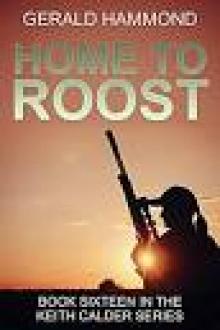 Home to Roost
Home to Roost A Dead Question
A Dead Question Twice Bitten
Twice Bitten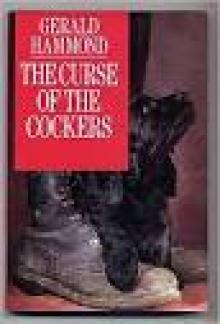 The Curse of the Cockers
The Curse of the Cockers In Loving Memory
In Loving Memory Illegal Tender (Three Oaks Book 12)
Illegal Tender (Three Oaks Book 12) Cold Relations (Honey Laird Book 1)
Cold Relations (Honey Laird Book 1)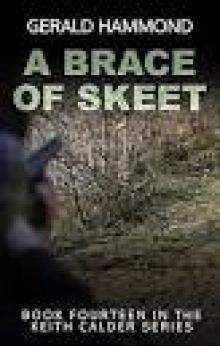 A Brace of Skeet
A Brace of Skeet Silver City Scandal
Silver City Scandal Sauce For the Pigeon
Sauce For the Pigeon Cold Relations
Cold Relations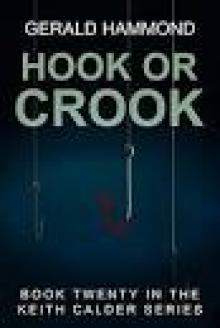 Hook or Crook
Hook or Crook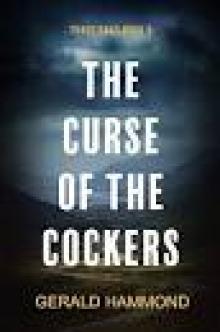 The Curse of the Cockers (Three Oaks Book 5)
The Curse of the Cockers (Three Oaks Book 5)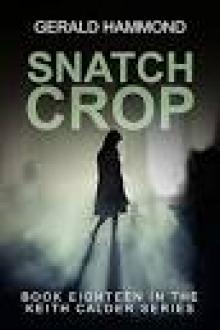 Snatch Crop
Snatch Crop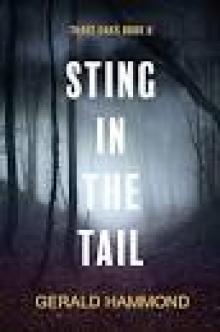 Sting in the Tail (Three Oaks Book 6)
Sting in the Tail (Three Oaks Book 6)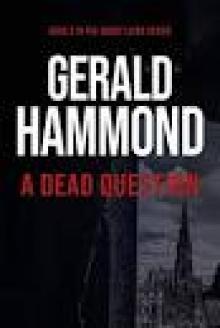 A Dead Question (Honey Laird Book 2)
A Dead Question (Honey Laird Book 2)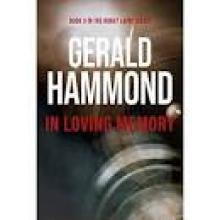 In Loving Memory (Honey Laird Book 3)
In Loving Memory (Honey Laird Book 3) Thin Air
Thin Air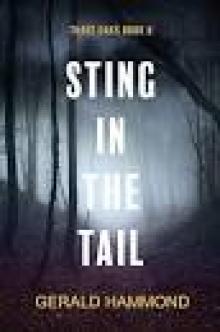 Sting in the Tail
Sting in the Tail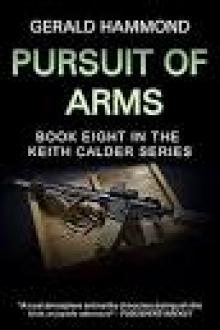 Pursuit of Arms
Pursuit of Arms The Game
The Game Give a Dog a Name (Three Oaks Book 4)
Give a Dog a Name (Three Oaks Book 4) Fair Game
Fair Game The Executor (Keith Calder Book 10)
The Executor (Keith Calder Book 10) Whose Dog Are You? (Three Oaks Book 2)
Whose Dog Are You? (Three Oaks Book 2)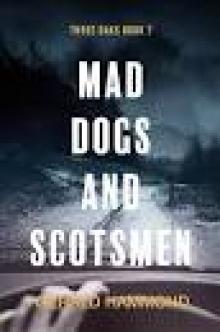 Mad Dogs and Scotsmen (Three Oaks Book 7)
Mad Dogs and Scotsmen (Three Oaks Book 7) Cousin Once Removed
Cousin Once Removed The Worried Widow
The Worried Widow A Shocking Affair
A Shocking Affair Dead Weight (Three Oaks Book 11)
Dead Weight (Three Oaks Book 11) Whose Dog Are You
Whose Dog Are You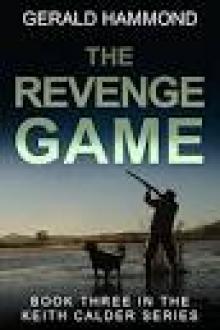 The Revenge Game
The Revenge Game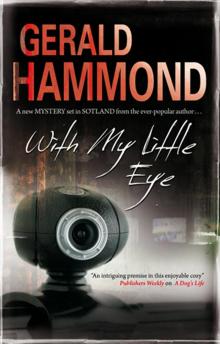 With My Little Eye
With My Little Eye Doghouse (Three Oaks Book 3)
Doghouse (Three Oaks Book 3) In Camera
In Camera Bloodlines (Three Oaks Book 8)
Bloodlines (Three Oaks Book 8)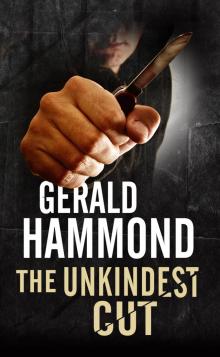 The Unkindest Cut
The Unkindest Cut